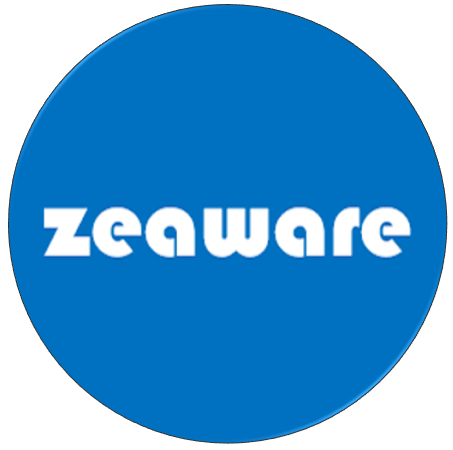We asked AI to debate the social media ban for Australian teens
Australia recently implemented a social media ban for under-16-year-olds, sparking considerable public debate. This policy aims to safeguard young people from potential online harms, but it also raises questions about freedom and education. At Zeaware, we decided to leverage our AI platform to simulate a debate on this issue, aiming to explore the varying perspectives and their implications.
NOTE: This debate was a non-scientific experiment using our AI agents. Zeaware does not take a position on this issue or any similar topics. The purpose of this experiment was to demonstrate the capabilities of AI in facilitating balanced and meaningful discussions.
The AI Debate: To Ban or Not to Ban?
Utilising Zeaware Avalon AI's ability to debate and discuss diverse viewpoints, our AI agents analysed the merits and setbacks of the new policy. The results were enlightening and balanced, providing insights into the overall societal impact and what is likely best for children and early-teens.
Experiment Setup
The experiment consisted of configuring multiple AI agents with apposing views, we asked each agent to present their arguments and then consecutively respond and rebut the prior agent arguments. Finally an agent that was configured not to have a viewpoint was asked to evaluate the strength of each argument and summarise and make a determination of the overall stronger position.
Overall Societal Impact
To evaluate the overall societal impact of banning social media for under-16s, we asked AI to consider multiple factors including economic implications, implementation costs, and broader social impact. Here's the AI-generated analysis:
Economic Impact
For Banning Social Media:
- Short-Term Economic Costs: A decrease in revenue for social media companies due to the reduction in user base, impacting advertising revenue and the digital marketing industry.
- Educational and Health Benefits: Improved academic performance could lead to a more educated workforce, boosting productivity and economic growth.
- Healthcare Costs: Reduced mental health issues among adolescents could lower healthcare costs related to treating anxiety, depression, and other mental health concerns.
Against Banning Social Media:
- Digital Economy: Social media significantly contributes to the digital economy. Platforms generate substantial revenue from advertising, with young users contributing significantly to these revenue streams.
- Career Opportunities: Early exposure to social media-related skills prepares youth for careers in digital marketing, content creation, and other technology-driven industries.
- Consumer Spending: Teens drive e-commerce and online purchases, contributing to the overall economy through social media platforms.
Social Impact
For Banning Social Media:
- Mental Health: Limiting exposure to social media can improve the mental health of adolescents, reducing cases of anxiety, depression, and cyberbullying.
- Privacy and Safety: Increased protection of young users from online predators and privacy breaches.
- Focus and Productivity: Reduction in distractions could lead to better academic performance and more engagement in physical and social activities.
Against Banning Social Media:
- Social Skills Development: Social media offers avenues for socialization and relationship-building, especially for teens facing difficulties in face-to-face interactions.
- Awareness and Critical Thinking: Exposure to various perspectives on social media fosters critical thinking and awareness of global issues.
- Technological Proficiency: Social media platforms are crucial for developing technological literacy, a necessary skill in the digital age.
Overall Societal Impact Analysis
The overall societal impact, including the economic, implementation, and social facets, suggests that a balanced approach might be the most beneficial. While the ban could offer significant mental health and safety benefits, AI analysed economic costs and potential loss in social skills and digital literacy as notable drawbacks. AI suggested that a balanced strategy incorporating supervised use, comprehensive digital literacy education, and gradual exposure to social media could harness the benefits of social media while mitigating its risks.
Best for Youth Impact
Next, we asked AI to focus specifically on what is best for children and under 16s, we asked AI to evaluate the potential benefits and drawbacks of banning social media for under-16s purely from a welfare perspective.
Arguments For Banning Social Media
- Mental Health Benefits: Numerous studies indicate that less exposure to social media is associated with lower levels of anxiety and depression among adolescents.
- Reduced Cyberbullying: Potentially reducing the risk of children encountering cyberbullying by removing a major platform for such activities.
- Privacy and Safety: Safeguarding children from potential risks such as online harm and inappropriate content.
- Improved Academic Performance: Removing distractions can lead to better grades and academic outcomes.
- Promoting Real-World Social Skills: Encouraging face-to-face interactions and offline social activities to develop essential social skills.
Arguments Against Banning Social Media
- Educational Opportunities: Social media offers chances for collaborative learning and access to educational content.
- Social Development: Social media can aid in building relationships, but real-world interactions are generally more beneficial.
- Awareness and Critical Thinking: Exposure to different viewpoints and global issues fosters critical thinking.
- Technological Literacy: Developing digital skills is crucial, but can be achieved through other tech-related activities and educational programs.
- Self-Regulation Skills: Important for children to learn to manage their time and online activities.
Overall Youth Impact Analysis
When focusing on what is best for the Australia’s youth, the AI concluded that the ban appears more beneficial. AI analysed that this offers advantages in terms of mental health, safety, academic performance, and the development of real-world social skills. The AI analysis was these benefits outweighed the potential moderate benefits of allowing social media with restrictions. Thus, from a child welfare perspective, banning social media for this age group was determined to be a stronger and more beneficial approach.
The Power of AI in Analysis
This debate showcases AI's ability not just to automate processes but to engage in and facilitate comprehensive analysis and discussions. By simulating debates, AI can support enterprises and institutions in exploring diverse perspectives and making informed decisions.
At Zeaware, we are interested in the transformative power of AI to support informed and balanced decisions. This simulated debate on the social media ban is just one example of how AI can be harnessed to tackle complex issues, providing nuanced insights and fostering educated discussions.
As we continue to innovate and expand our capabilities, we invite enterprises to explore how Zeaware Avalon AI can revolutionize their approach to AI-powered solutions.
Disclaimer: The AI agents used in this experiment were based on publicly available AI models. These models may contain inherent biases present in their training data, which can influence the analysis and conclusions. Additionally, subtle variations in prompts and contextual nuances may affect the outcomes of the analysis. This experiment is for demonstration purposes only and should not be relied upon as factual analysis. Furthermore, AI-generated content should be interpreted with caution, considering the potential for inaccuracies or omissions. Users are encouraged to conduct thorough research before making any decisions based on AI-generated analyses.






